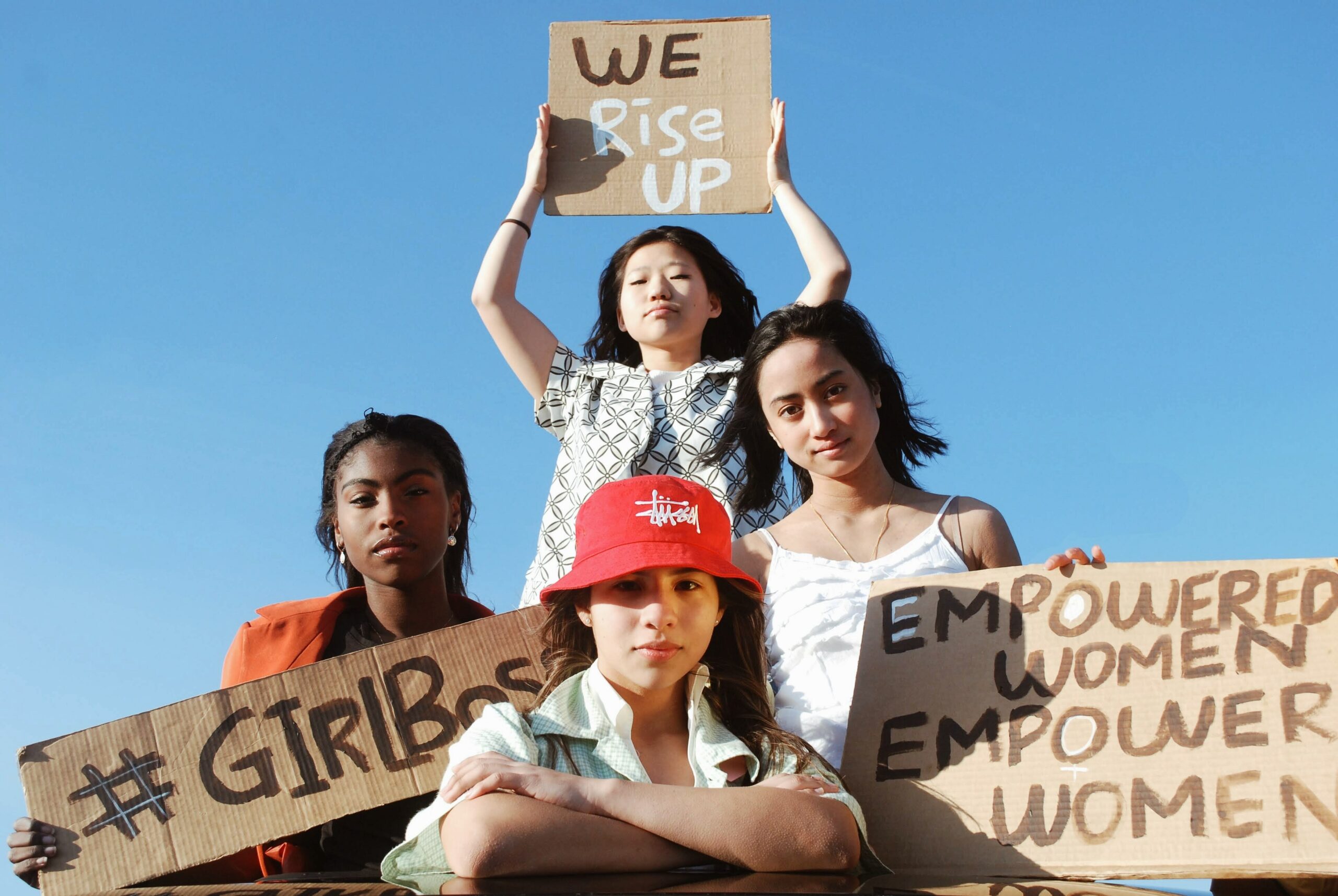Dear Monsters,
This might come as a surprise to you, but in my early twenties, I wasn’t much of a feminist. I thought that feminists were women who persisted in fighting a battle that was long over. There was no need to join the movement, I believed, because I enjoyed equal rights as my male peers. I didn’t feel disadvantaged in any way, shape, or form—neither by my family, nor by my teachers or professors or friends.
That was, until I joined the workplace.
I remember sitting at a wide conference table that had electric sockets in the middle of it. I was repeatedly leaning forward, holding the laptop cable in my hand, desperately trying to plug it in, but I couldn’t. The table was too wide. I kept jumping, as if I were doing a stretching pose at yoga, my fingers desperately trembling, still inches away from the plug-in. Something was off, I thought as I sat myself back in the chair.
There were two options, my dears: either the table was too wide or my hands were too short. I had a slight sensation that that conference room hadn’t been frequented by people who were 5 feet 3. One of my male colleagues took my laptop cable and effortlessly plugged it in. That was the first time I felt like I didn’t really belong in the boardroom. And, yes, this was just the beginning.
I have been offered less money than my male peers for the same position. I have been asked if I was planning to get married and have children soon as part of my performance review. I have been mistaken for somebody’s assistant, instead of their peer. Yes, this was happening in the twenty-first century.
Whenever one of those situations occurred, I wanted to find somebody who could tell me that I was wrong. I wanted somebody to tell me that I did belong in the leadership circles. Unfortunately, every time I looked up toward the board of directors of my organization, I saw no one who looked like me. The C-suite seemed to be reserved almost exclusively for gray-haired white men of Western European descent, which I was not.
It wasn’t so shocking that millennials, like me, didn’t manage to reach the C-suite because of their age. We were still young, right? It was still surprising, though, to see that women barely ever managed to get into middle management, let alone to the executive floor. But this is not just a feeling, it is a fact.
According to the latest Mercer Global Talent Trends Report, fewer women ask for promotions than men (60% compared to 73%). Also, fewer women receive the requested promotions and pay increases (48% compared to 62%). These disparities have a disproportionate impact on perceptions of thriving: 44% of men—but only 23% of women—who were denied a promotion reported that they are still thriving at work.
So, why should we all be feminists in the workplace? My journey has shown me that even in an era where we’ve made significant strides towards gender equality, there are still persistent biases and barriers that affect women’s careers. Whether it’s the gender pay gap, intrusive questions about family planning, or being overlooked for promotions, these issues underscore the importance of feminism in our professional lives.
- Equality Isn’t a Given: Despite advancements in gender equality, the workplace can still be rife with bias and discrimination. It’s crucial to acknowledge that the battle for gender equality is far from over, and feminism provides a framework for addressing these challenges head-on.
- Championing Female Talent: Embracing feminism in the workplace isn’t just about women—it’s about recognizing the value of diverse perspectives and talents. New Age leaders must champion female talent and provide equal opportunities for women to thrive.
- Promoting Inclusivity: Feminism isn’t about women against men; it’s about inclusivity. Creating a workplace where everyone, regardless of gender, can succeed benefits everyone. Inclusivity fosters innovation, creativity, and a richer organizational culture.
- Fighting Stereotypes: Gender stereotypes persist in many workplaces. Feminism challenges these stereotypes and allows individuals to be evaluated based on their skills, contributions, and potential rather than their gender.
- Closing the Gender Pay Gap: The gender pay gap remains a stark reality. Feminism calls for equal pay for equal work and urges organizations to address this issue systematically.
For New Age leaders, it’s not enough to passively support gender equality. Here’s what you need to do:
- Lead by Example: New Age leaders should embody the principles of feminism in their actions and decisions. This means actively promoting diversity and inclusion within their organizations.
- Mentorship and Sponsorship: These leaders should actively mentor and sponsor female talent. Providing guidance and opportunities for career advancement can make a substantial difference.
- Equal Pay: Ensure that pay equity is a fundamental principle within the organization. Periodic audits of pay structures and addressing any disparities are essential steps.
- Flexible Work Arrangements: Recognize the importance of work-life balance for everyone. Offer flexible work arrangements that allow employees to manage their personal and professional lives effectively.
- Diverse Leadership: Strive for diversity at all levels of leadership. Encourage and support women in leadership positions and create a pipeline for future female leaders.
- Education and Training: Invest in training programs that raise awareness of unconscious biases and promote a culture of respect and equality.
In conclusion, my journey from skepticism to embracing feminism in the workplace has highlighted the ongoing challenges that women face in their careers. It’s clear that feminism isn’t just a movement of the past; it’s a vital force for shaping a fairer and more inclusive professional world. New Age leaders must actively champion gender equality and foster environments where all individuals, regardless of gender, can thrive and contribute their best. Together, we can create workplaces that empower everyone to reach their full potential.
Photo by Natalie Hua on Unsplash





